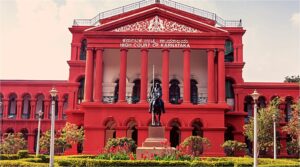Bengaluru: In a significant development that could impact thousands of landowners across India, the Karnataka High Court has granted interim protection to a prominent Mangalore businesswoman challenging the imposition of income tax on her land acquisition compensation.
Hon’ble Justice M.I. Arun, hearing the case on December 12, 2024, directed income tax authorities not to take any coercive action against the petitioner, Smt. Supriya S Shetty, until the next hearing scheduled for January 22, 2025.
The case raises a fundamental question: Should landowners pay income tax on compensation received when their property is acquired for national highways?
At the heart of this legal battle is a wellness resort project. Over two decades, Smt. Shetty and her husband had carefully acquired about 17.48 acres of land near Mangalore for their dream project. In 2020, portions of this land were acquired for the expansion of National Highway 169.
The twist in the tale came when tax authorities deducted TDS (Tax Deducted at Source) from her compensation of Rs. 1.9 crores. The total tax liability, including interest and penalties, now approaches Rs. 1 crore – effectively halving her compensation.
Advocate Mr. K.V. Dhananjay, representing Smt. Shetty, presented a compelling argument centered on Section 96 of the Right to Fair Compensation and Transparency in Land Acquisition, Rehabilitation and Resettlement Act, 2013 (RFCTLARR Act). This section explicitly states that “no income tax shall be levied on any award or agreement made under this Act.”
The legal question is: While Smt. Shetty’s land was acquired under the National Highways Act, 1956, the compensation was calculated using the RFCTLARR Act’s provisions. Should she not, therefore, benefit from the tax exemption under Section 96?
“This is not just about one landowner,” argued Dhananjay. “It’s about ensuring that people who lose their land for public purposes receive truly fair compensation. When half the compensation goes to tax, how is that even fair?”
The case has broader implications. Across India, numerous infrastructure projects require land acquisition under various laws. If the High Court rules in Smt. Shetty’s favor, it could benefit thousands of landowners whose properties are acquired under different acquisition laws but compensated using RFCTLARR Act provisions.
The petition also raises an alternative constitutional argument: If the tax exemption is limited only to acquisitions under the RFCTLARR Act, it would create an arbitrary distinction between similarly situated landowners, violating Article 14 (Right to Equality) of the Constitution; and, the Court should then force an exemption also under the National Highways Act to bring about equality between landowners under the NH Act and the RFCTLARR Act.
The High Court had previously issued notices on 28-Nov-2024: Smt. Nayana Tara B.G. for the Union of India, Sri. M. Thirumalesh for the tax authorities, and Smt. Shilpa Shaw for the National Highways Authority of India and Additional Government Advocate, Government of Karnataka for state agencies that deducted the income tax on instruction of central tax authorities.
The case highlights a paradox in India’s land acquisition laws. While Parliament has standardized compensation calculations across various acquisition laws through the RFCTLARR Act, the tax treatment remains inconsistent. Two identical plots of land, acquired for the same highway project, might face different tax consequences based solely on which law was used for acquisition.
For Smt. Shetty, the stakes are personal. “This was not just land; it was our dream project,” she says. “Now, not only have we lost the land, but half of what we received as compensation might go to tax. This legal challenge is to redress the tax injustice to landowners across the country who sacrifice their land for the greater good of the nation.”
The case has attracted significant attention from legal experts and property rights advocates who say that this case could lead to a landmark judgment at the Karnataka High Court that could impact landowners across the country. And that this case touches upon fundamental questions of fair compensation and equality before law.
The next hearing is scheduled for January 22, 2025. Until then, the court’s interim order ensures that no coercive action can be taken against Smt. Shetty for non-payment of the demanded tax.

